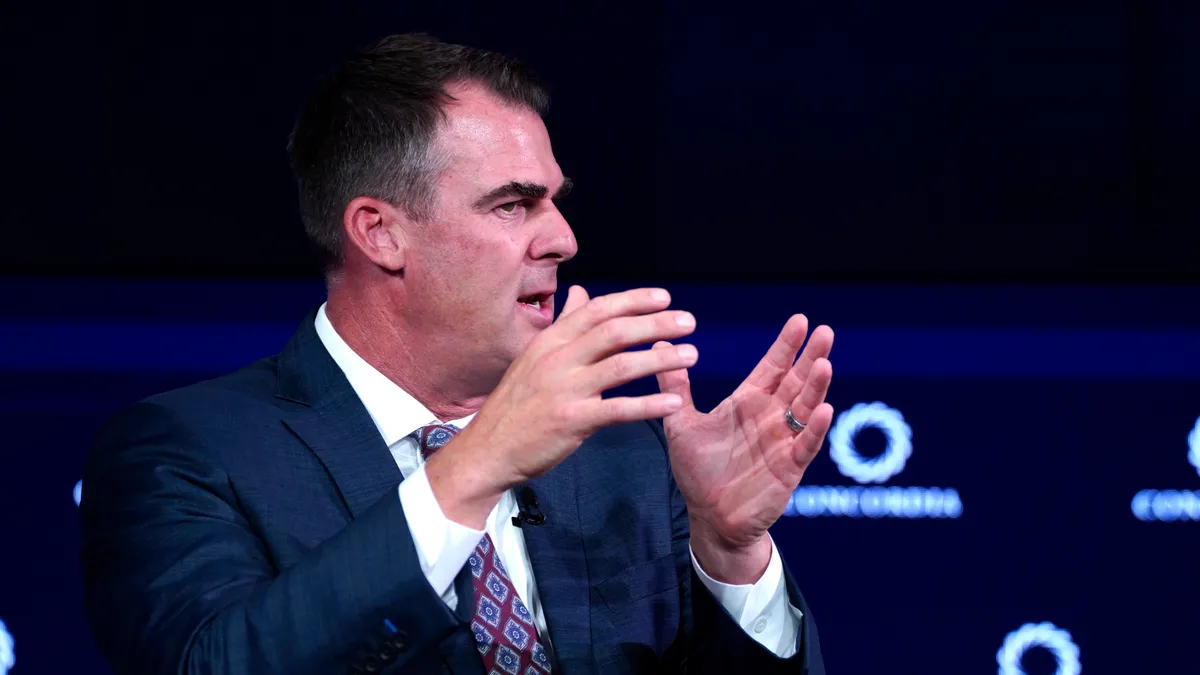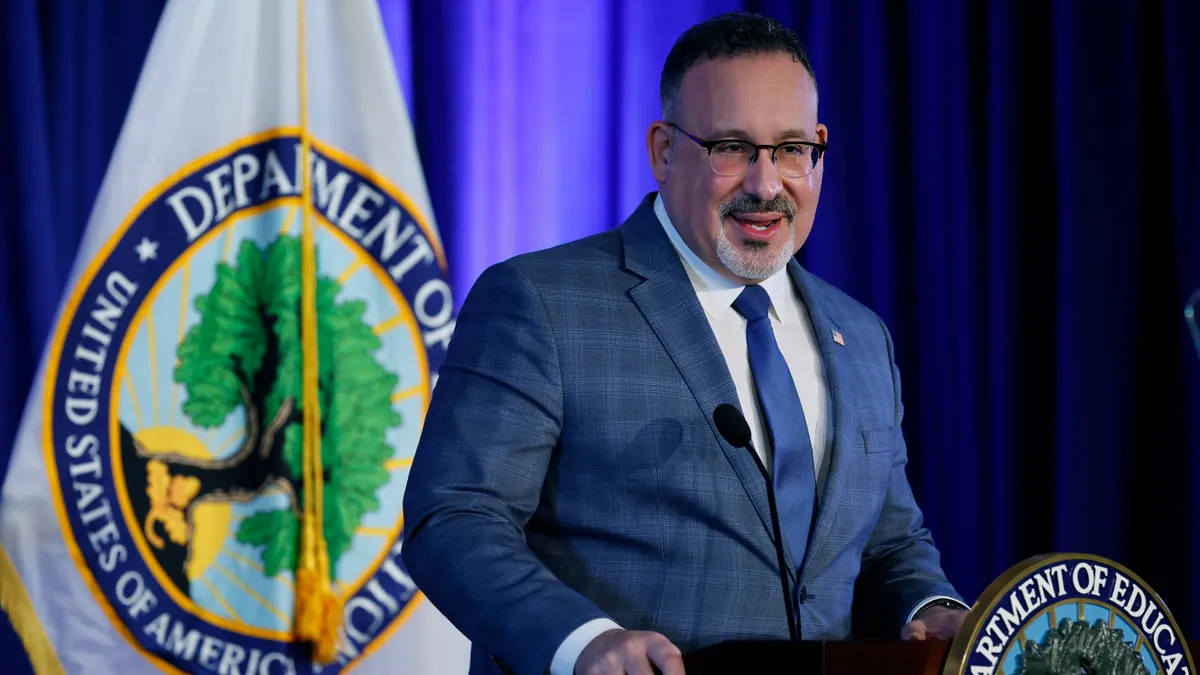Ricardo Azziz has held numerous executive positions in higher education and led the merger that resulted in Georgia Regents University, now Augusta University. He is principal at Strategic Partnerships in Higher Education, or SPH, Consulting Group.
He writes the regular Merger Watch opinion series on corporate restructuring in higher education.
The higher education sector faces mounting challenges, including troubling demographic forecasts and the rising cost of running a college. Given these issues, widespread market consolidation — including mergers and closures — is inevitable.
Consequently, more higher education leaders will ask themselves whether they can lead major institutional restructurings through mergers and acquisitions — moves my colleagues and I have termed “Big Scary Change,” or BSC.
Leadership is not one-size-fits-all. There are many types of leaders and leadership styles, some of which fit the institution, situation or environment better than others. Thus, leadership competencies required to do the job well will vary.
Research for our forthcoming book, "Leading Existential Change in Higher Ed," has identified seven critical competencies essential to BSC. These include:
- Experience and comfort leading major change, uncertainty and risk.
- Providing “all-inclusive operational envisioning.”
- Setting the pace of change.
- Generating urgency and selling the vision.
- Building transformative teams and managing delegated work.
- Leading from the front.
- Courage.
However, not all leaders in higher education — actually, not most — should undertake major change initiatives.
Throughout the many years I’ve provided guidance and consulting on mergers and acquisitions, I’ve often heard the following eight statements from college or university leaders — statements whose responses impact the ability to successfully undertake BSC.
1. “I want to be loved.”
We all want to be loved. But if you need to be loved absolutely and always, then you will not be successful or happy leading BSC. Leading BSC is always about making unpopular and difficult decisions. Can you expect to be respected? Yes. Trusted? Yes. Loved? Not so much.
2. “I don’t like conflict.”
Unfortunately, undertaking BSC is about conflict. Although most of us don’t seek conflict, it will nonetheless arise when leading BSC. The one certainty about major institutional restructuring is that there will always be opposition and, therefore, conflict.
3. “I don’t like making difficult decisions.”
Leading BSC is all about making tough decisions. Who to keep? What to sacrifice? What can’t you promise? What can you say — and when? If you know you prefer not to make difficult decisions, undertaking BSC is not for you.
4. “I want to have all the data before making any major decision.”
Leading BSC means operating in significant ambiguity and uncertainty without always knowing what the future holds. Because BSC is a rare event for any institution or individual leader to undertake in their lifetime, enough data will never exist. If you require all the answers before making a decision, leading BSC is not for you.
5. “I find it hard to make changes to my team.”
Leading BSC is not suitable for all members of the executive or managerial team. The BSC leader must be willing to honestly appraise the team members' skills and their readiness for change. Then, the BSC leader must be ready to make the necessary changes to their team.
As author and consultant Jim Collins recommended in his book "Good to Great," leaders must ensure they have the right people on the bus and in the right seats. Leaders must do this rapidly, firmly and compassionately.
6. “I can’t visualize the path forward.”
You can't lead people if you don't know where you are going. More often than we would like to admit, higher education leaders must promote the vision of others, including their board members, state governor or legislature, or even the nation’s president. However, undertaking BSC means being able to positively and genuinely present an operational vision — what the future will look like, how it will work, and what it will take to get there. Without a clear vision of the path forward, you can’t lead a BSC.
7. “I don't believe things are as bad as they say.”
Undertaking BSC means setting the pace and drumbeat for change, as well as being able and willing to create a sense of urgency. Things need to happen relatively quickly — because the environment is changing rapidly and because in BSC slowness favors the opposition, giving them more time to organize and for BSC leaders to become fatigued. If you do not think the BSC has urgency, it is best to not undertake it.
8. “I am not willing to risk my career.”
Few are willing to risk their careers, even if that undertaking presents the best path forward for the institution and its students. That’s why we too often see higher ed leaders choosing inaction and incrementalism — regardless of the long-term consequences to the institution.
Taking on BSC means being willing to make mistakes and even fail. Yes, doing so might risk your career, but there are many ways to mitigate this risk, including negotiating in advance separation terms or future job opportunities, should that become necessary. However, the key is to know when the undertaking is best for the institution and its students, at least for the longer term.
It is critical for college leaders to honestly and authentically assess whether they have the skill set and personal attributes to undertake a necessary BSC. It is perfectly acceptable for all leaders to decide that they are not ready, willing or able to take on specific challenges, including BSC. For the sake of the institution, its students, its faculty, and oneself — it’s key to not undertake or, worse still, to retain a position for which we genuinely are not best suited.
Leading Big Scary Change — not just mergers or closures, but all major institutional restructuring — requires a different set of skills than what’s required to lead a college or university during the usual course of business.
While some of the competencies that foster success in these major institutional changes can be learned, many stem from lived experience or intrinsic personality — which are harder, if even possible, to acquire. The right and responsible thing to do when we decide a job does not fit us well, or we do not fit the job well, is to allow the opportunity to pass to someone else who will be best suited for the task ahead.



































